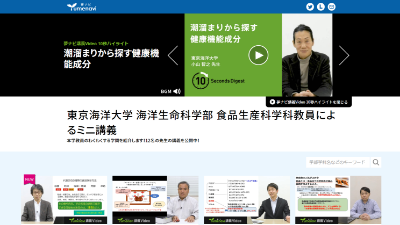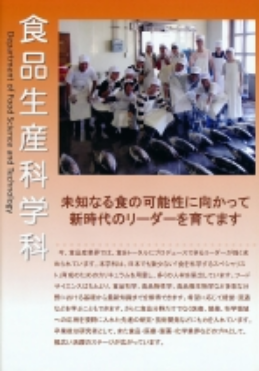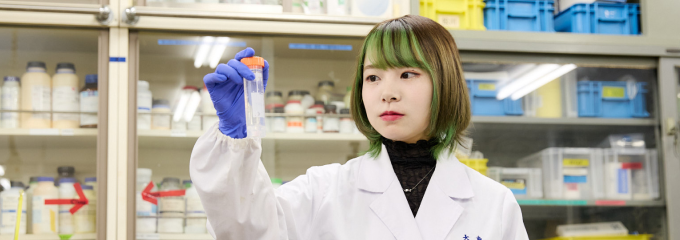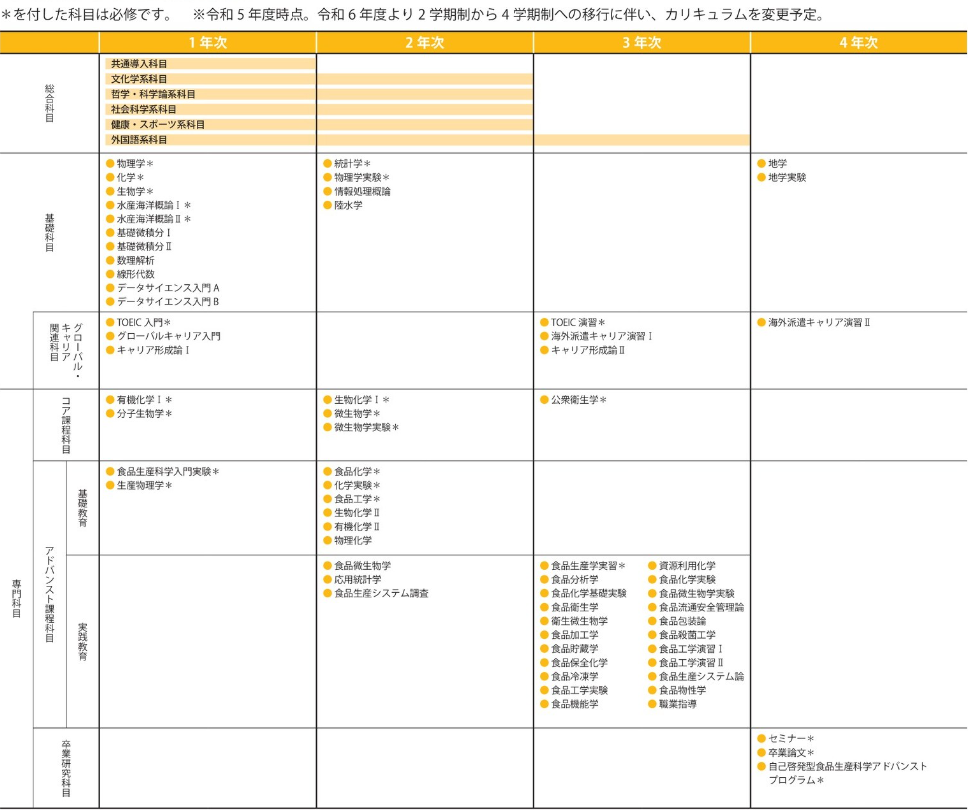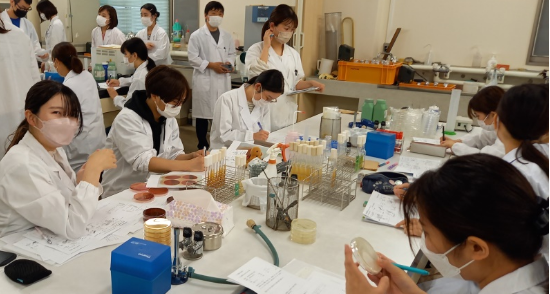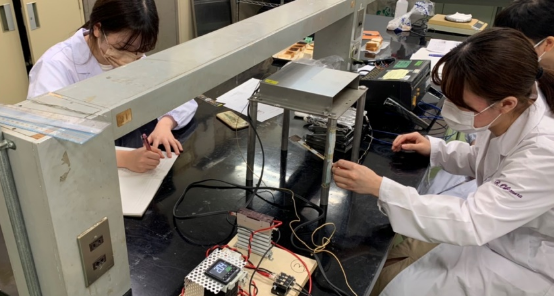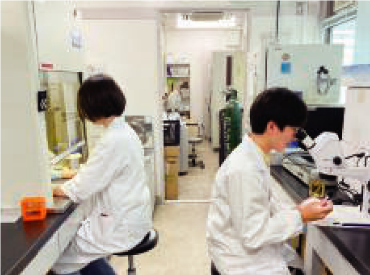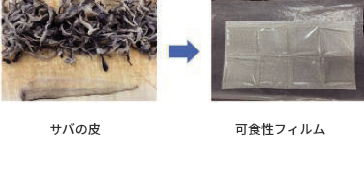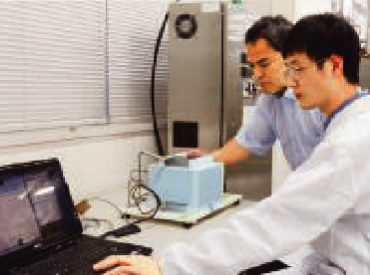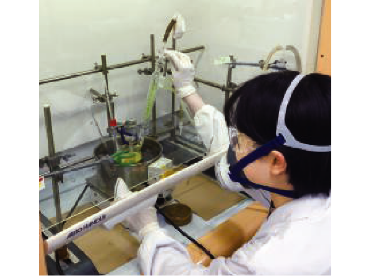1. Policy for organizing the curriculum
In the Department of Food Production Science, we offer ``General Subjects,'' ``Professional Introductory Subjects,'' and ``Specialized Subjects (Core Course Subjects) in order to help students acquire the four basic skills and abilities listed in ``2'' below. )” and “specialized subjects (advanced course subjects)” are systematically organized. “General subjects” are a group of subjects that help students acquire a wide range of knowledge and language skills, while “specialty introductory subjects” and “specialized subjects (core curriculum subjects)” cover diversifying specialized fields. This course is organized as a group of subjects to enrich the basic skills necessary to understand the subject. On top of that, ``specialized subjects (advanced course subjects)'' include biology, chemistry, physics, and engineering in order to acquire multifaceted inquiry skills that are essential when dealing with food. It is organized as a division consisting of a wide range of specialized subjects based on academic studies, etc., and is connected to graduate school education. Furthermore, ``Global Career Related Subjects'' will help students connect smoothly to the international community, industry, and other societies.
2. Policies regarding educational content and educational implementation methods
The class subject categories are "general subjects," "specialized introductory subjects," "specialized subjects (core curriculum subjects)," and "specialized subjects (advanced course subjects (basic education))." , ``Specialized Subjects (Advanced Course Subjects (Practical Education))'' and ``Global Career Related Subjects'' will be established, and we will conduct lectures, exercises, experiments, and practical training.
(1)Specialized knowledge
In order for all students in the department to acquire specialized knowledge that is the basis for all fields of the department, we offer specialization courses (core curriculum subjects) and specialized courses from the first to third years. Subjects (Advanced Course Subjects (Basic Education))” will be implemented. In addition, in order to help students acquire in-depth specialized knowledge of each stage of food production, from production, processing, distribution, and consumption, as well as the knowledge and skills to analyze and solve various problems related to each stage, we mainly train students in three areas. In each year, students will study a group of subjects called "specialized subjects (advanced course subjects (practical education)"). Through lectures, experiments, and practical training in the "Specialized Subjects (Advanced Course Subjects (Practical Education)"), students will actually learn logical thinking, techniques, and techniques for identifying and understanding problems, and solving them. Along with gaining experience, students learn how to collaborate with others and learn leadership skills.
(2) Rich internationality and wide-ranging education
With the aim of cultivating a wide range of knowledge, logical thinking ability, cultural background, international perspective, communication skills, and presentation skills, we carry out "general subjects," and also prepare students for English language qualification exams, study abroad, and We will conduct "Global Career Related Subjects" related to each career development. Mainly in the first and second years, in order to help students acquire systematic basic knowledge of natural sciences, mathematical sciences, humanities and social sciences, and basic information technology, which are the foundation for learning specialized subjects. “Specialization introductory subjects” and “Specialization subjects (core curriculum subjects)” will be held every year.
(3) Ability to think and make decisions independently
In order to acquire the foundation and ability to think logically and make accurate judgments based on a variety of information, we provide exercises, experiments, practical training, and A 4th year seminar and graduation thesis will be held. Furthermore, in order to help students acquire the ability to make ethical decisions, we provide education related to researcher ethics as part of the fourth-year seminar.
(4) Practical skills that can be used in the field
In order to integrate the knowledge and skills from (1) to (3) above and acquire applied and practical skills that can be used in the marine field, a seminar and graduation thesis will be held in the fourth year to help students solve problems. We aim to develop the ability to identify issues that need to be addressed, plan a path to a solution, and execute and verify plans based on the plan. Additionally, we offer "Global Career Related Subjects" to help students connect smoothly with the international community, industry, and other societies.
3. Policy regarding evaluation method of learning outcomes
In all subjects, learning outcomes and achievement of goals will be rigorously evaluated through exams, reports, presentations, etc.





